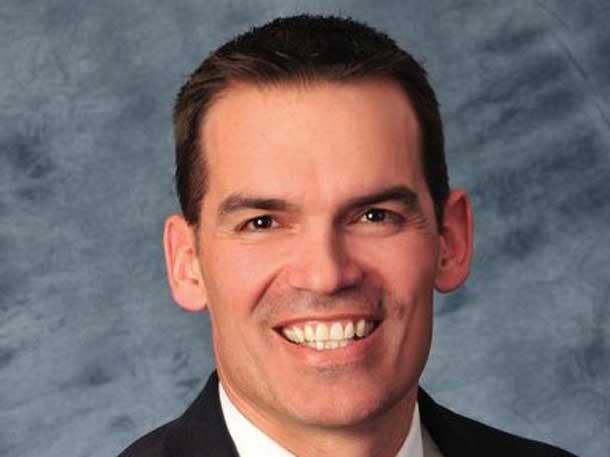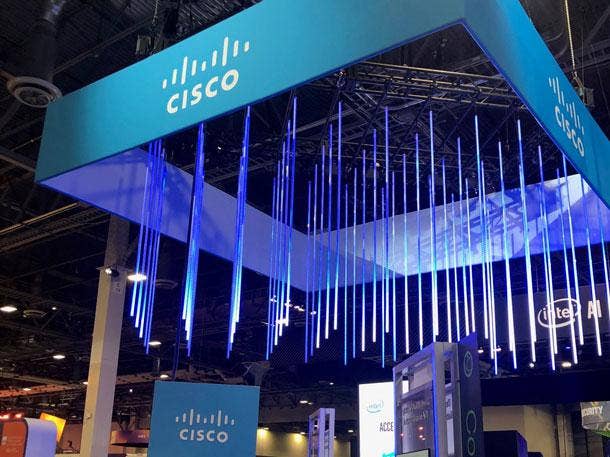Telarus CEO On Channel Evolution, The Burgeoning Cisco Relationship And Opportunity Amid Macro Pressures
The telecom service broker’s CEO, Adam Edwards, talks with CRN about selling through hard times, the push for inclusive language in the industry, and emerging security opportunities for partners.

Moving And Shaking
The telecom service broker industry has been on a high-growth path that’s not unlike a rocket ship trajectory. There are a few contributing factors. Recent macro events that have reshaped the economy, such as the COVID-19 pandemic, have had an undeniably positive effect on the technology industry as businesses make necessary investments in the digital workplace. Another major factor for all the growth? Recurring revenue mandates that most channel partners are employing, according to Adam Edwards, CEO and co-founder of Telarus.
Telecom service brokers like Sandy, Utah-based Telarus are no longer serving only agent partners. There’s a good blend of MSPs and traditional VARS in the mix now as these firms realize the importance of building a recurring revenue stream. And if they’re not ready? Telarus is there to help partners with financing plans to help them get the commissions they need while growing their businesses, Edwards said. And it’s not just channel partners that are getting into the telecom space. Vendors that have historically partnered with hardware VARs are now realizing the power of the telecom channel and are creating business models to target these partners, including Cisco, who Telarus added to its supplier portfolio earlier this year.
The kinds of partners are changing and so is the technology. Just six years ago, Telarus was generating 90 percent of its sales from networking. Now, that mix is closer to 60 percent networking and 40 percent strategic services, such as cloud, security, and IoT. Another recent change is the term “telecom service broker” itself. Telarus and its peers, who have historically referred to themselves as “master agents,” are now coming together to prioritize inclusive language.
There’s been quite a bit of change for one portion of the tech industry as of late, but one major factor that never changes: the channel is a relationship business and customers will always lean on the partner they trust to help them make new buying decisions and weather major changes.
Telarus’ Edwards sat down with CRN to catch up on the evolution the firm is seeing in partner types and revenue mix, the company’s nascent but flourishing relationship with Cisco, and the emerging technology opportunities for partners.
Here’s what Edwards had to say.

Are you seeing the mix of partners change as MSPs and VARs dip their toes in telecom?
We see all three of them playing. There’s still a core of telecom agents, but what’s interesting about them is they’re morphing into selling other products. There’s more depth of service. If you look at the core of the business, it was telecom, and now it’s morphed into all of these other services, whether UCaaS, CCaaS, cloud infrastructure, compute, store, security, mobility, and IoT... we’re just seeing all of those now and those technologies will continue to change, but it is the model that remains consistent. So, it’s interesting to see VARs and MSPs adopt it as they really felt it was beneath them for the longest time. We’ve knocked on their doors for years, and they really weren’t interested. But it’s interesting to see this shift now because most of them have a mandate to get more recurring revenue and they're looking for different avenues to do that, both with MSPs and VARs. In fact, we have one very large VAR [partner] that has mandated in the next five years 50 percent of their revenue will be recurring. That’s a big push — that’s moving the entire organization toward this model, because that’s the fastest way to get recurring revenue.
There's a push from the customers as well. In fact, Cisco said this recently: “We opened up this channel and we wanted to make sure we weren’t cannibalizing or creating share shift from our existing partners, what we found was our existing partners were already here.” We launched with Cisco about six months ago and what those partners had found was that their customers wanted to purchase this way. That’s what I think a lot of people fail to understand is we all have these great ideas, but at the end of the day, the customer makes the decision, and the customer decides how they want to buy — whether it’s click a button online or whether they're going to engage a consultant. So, the argument we were having 10 years ago with providers was, should they even have a channel because they would rather have customers sell or buy direct from them. Then, what they all realized and what you see now from the number of providers that are engaged in this channel, is that the customers answer the question for them, which is “I want to buy from someone I trust, not someone who I met two weeks ago.”

How are you helping solution providers evolve and grow their business?
There are no more excuses. It used to be the excuse: “The cash flow doesn't work for me, I need top line revenue, I get paid up front. That’s how I pay my employees.” All those excuses are out the window because organizations like ours and our competitors have financial resources for them. We can front-load commission, we can take care of their compensation, we can do all those things. The only thing holding them back is a decision. And what we find is, some principals of these smaller organization make the decision, but the reason for failure is once they make the decision, they don't adjust their compensation plan. Or they don’t make sure that the entire organization is quota-based and they truly shift it. So that's where I think is the holdup. Some people simply not making the decision, or if they do make the decision, not implementing the right plan. But the resources are there. [During a recession,] people lose their jobs, and they look to start a business, but back then, we didn’t have the financial resources to help. Today we do. And so, a recession or change in business model from a VAR, is something that we can help augment and help them through a tough transition.
Our whole purpose for being is helping a partner grow their business and be successful. We started just lending to partners because building up recurring revenue takes years. And that means to build up the revenue to be able to hire someone to help grow faster and compound your growth, it takes a lot of time. But if we could accelerate that by getting money into their hands, so they can invest it, that was good for them and good for us. That lending program has been in place for quite a while. And then there became an interest for partners to buy down some of their commission or sell off some of their revenue, because they saw some of these transactions going on in the industry — and there's a lot going on. Agents have become very smart about that very quickly. Just in the last year and a half, they talk about multiples now. Whereas, I would say a year and a half ago, most of them didn’t know what a multiple was. What we find [is] the partners we want to engage with are not the partners that want to sell their business and be done. We think there's a place for them to go and we’re happy to refer them to partners who are buying other partners because we want them to grow. What we're interested in is the partners who want to keep growing their business, but look over and say: “Hey, I want to cash out, or I want to reinvest in my business; I want to take some off the table and keep running.” Those are the ones we want to transact with and enable that transaction so they can do whatever they want to do with that capital — reinvest it, deploy it somewhere else — but keep growing their business. And that’s what we've been doing a lot of for last year and a half — a lot of those transactions.

How are macro trends and current events shaping the telecom broker space?
We saw the recession in 2008 and 2009 as a great phenomenon. I think any change is good for us. Anything that accelerates these trends is good for us. Recession has been helpful for us, because it finds more people who want to start a business and become an advisor. The pandemic helped because it fast-forwarded some of this technological shift. And that was good. Anytime there's a reason for people to have conversations about technology, it’s good for us.
Six-seven years ago, [sales] were 90 percent network. Today, it's 40 percent network and by the way, that 40 percent number of actual bookings is a heck of a lot bigger than that 90 percent. I would say in 2015, we were probably booking 10 percent of what we are now. So, while the mix has shifted dramatically, the numbers are huge. That 90 percent number pales in comparison to that 40 percent today.
The beauty of the model is not the technology. We started selling long distance and calling cards. The technology continues to morph. When the technology changes, customers are going to reach out to somebody. So, it has gone from long distance, to Internet access, to MPLS, and now we're talking SASE. we’re just dealing with different technologies now, but it's the same fundamental, the customer is looking for help because there is a decision to be made.

How is your sixth-month-old relationship with Cisco going?
It's going really well. I guess I’ve been surprised at the reception there because of the brand they have. We've got a lot of interest globally from partners saying: “Wow, I’d really like to access Cisco through this model.” It's been bigger than I had anticipated. I’m also happy with the trend we're seeing there, because a lot of eyes at Cisco are on this. Leadership is watching. It’s not a big percentage of revenue for them yet [and] it's not all of their technologies yet, but they’re watching this because it's an indication of this channel model. I think that’s the important litmus test right now is can this model be applied to the rest of their businesses? And we know the answer is absolutely, yes. They're looking for conviction there right now and I think they’re seeing the things that they want to see.
I think they understand they've got an installed base that is looking. And I think customers, whether large or small, don’t just look at the brand anymore. They look at the ultimate solution. That's why I think it’s been surprising for some of these storied brands. It's just like AT&T. They couldn’t believe that ACC Business was selling the numbers that they were and what they found was that the customer is looking for something that makes sense, and they are talking to an advisor and trusting that advisor rather than just buying a brand they see.

Tell us about how the industry is now unifying around inclusive language and the term “telecom service broker” as opposed to “master agent?”
We actually tried this four or five years ago because we thought “master agent” was a bizarre term. And then to have your customer be a sub — like be subordinate to you — when you're at a family party and trying to explain what you do, it’s just bizarre language. So, we tried to change it at one point, and it failed. What we found is, the press didn't call us what we want to be called because it was already a name. Competitors continue to call themselves [master agents], so we did nothing. And then this conversation came up again, and I believe it was T-Mobile that pushed it forward in their contract. They wanted to use different language. And that’s when [telecom service brokers] got together.
Our inclusion committee from our organization and then some of the other telecom service brokers said: “Yeah, we'll get on board with this.” Comcast said: “Yeah, we want to get on board and this,” and I think that’s when it all came together. People said: “OK, we'll all decide together. And if we use these terms, then it will change.” And that’s what happened. The funny thing is, we still can't decide. Part of us said “telecom services brokerage” and part of us said “technology solutions distributor.” I think it’ll get settled out pretty soon.

What are the big technology areas that partners should be looking at right now?
I would say the most talked about product right now is security. I think part of it is partners are getting acclimated to it and educated. We have a significant amount of security conversations because it doesn't only come up as a raw security conversation, or a solo security conversation, it comes in conjunction with all other technologies. When you’re talking about network, when you're talking about cloud, you’re going to be talking about security as well. So, we see a lot of that, and we think what follows that education cycle is a lot of transactions. Along that maturity cycle, it was network first. And so, while the technology increases or improves, and we have those conversations, we close consistently. It's the same with UCaaS or CCaaS — as technology is moving along, we’ve hit this maturation point where it's just very predictable growth. What we see in security, though, is it’s a whole lot of education, a lot of interest. [Security] grew over 100 percent last year — off of a small number — but we expect to continue to grow at that rate.
We're looking at quite a few technologies, [like] robotic process automation. A lot of what we’re starting to sell through our enablement partners is business process outsourcing, which isn't a technology; that’s people. It's a service that’s asked for by customers. We're already selling AI as a part of the contact center — a lot of the licensing there right now is on AI and bots, which we’re selling. I think we'll see those a lot of those things in other categories as well. Blockchain we know is going to be a part of the contracting process. So, I think it will become embedded in some of these other categories. We’re looking at those quite a bit, but what we have learned is just because we think something’s really cool and is going to take the world by storm, we really have to look to our partners and the conversations they’re having with their customers as to what they want to see first.